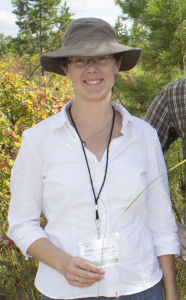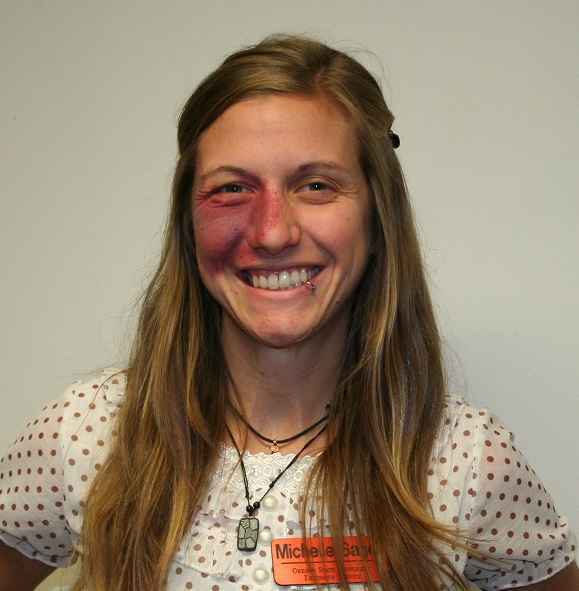
Image via Flickr/Richard Hurd
Trees can do that?!
Why urban trees are good for us – and what we can do to enhance their roles
This presentation discusses the many benefits provided by urban trees and woods, based on the latest research evidence from across the globe. Focus will be on the many contributions trees make to our health and wellbeing, as well as to building stronger urban communities. Some of the benefits of trees in cities are perhaps surprising, such as their roles in stimulating creativity and child development. A rapidly increasing body of knowledge stressed the various ways in which trees and other nature impacts public health. Urban forestry has the task to optimise tree benefits, while also making sure that a sustainable and resilient urban forest is developed. Best practices in urban forestry are presented, including the need to apply a place perspective, develop partnerships, and work closely together with local communities. Finally, the role of urban foresters and other professionals, as well as citizens and communities, in developing better and more vibrant cities will be discussed.
For the past 20 years Cecil Konijnendijk has studied, taught and advised on the role of trees and green space in our cities and towns. His particular interests include green space governance (including community involvement), people-nature relationships and cultural ecosystem services, and urban forestry and urban greening. Cecil’s work has brought him across the globe and he have always worked in close dialogue with decision-makers and practitioners, and I am eager to develop new research that has high practical relevance. He is currently professor of urban forestry at the University of British Columbia in Vancouver, Canada, Before coming to UBC, he worked at Wageningen University (Netherlands), the European Forest Institute (Finland), the University of Copenhagen (Denmark), the Swedish University of Agricultural Sciences (Sweden), and the University of Hong Kong (Hong Kong, China). Cecil is editor-in-chief of the journal ‘Urban Forestry & Urban Greening’, and has (co-)authored three books, including the recent Routledge Handbook of Urban Forestry. Speaker Biography

Presentation
- Tuesday, August 7, 2018 [webinar]
There’s some audio problems in the beginning that we fought our way through. The issue is resolved when we switch over to a land-line for audio.
Related Information
Speed-Round Presenters
Preparing for Wildfires with Firescaping: An Advanced Training for Master Gardeners
Wildfire severity has increased in recent decades nationwide, threatening more lives, structures, and landscapes. The national Firewise program provides recommendations for making homes and landscapes wildfire-safe. Many communities follow these recommendations, yet every year more homes are lost to wildfires. Efforts are becoming increasingly necessary to expand the reach of this vetted program. The established and successful Master Gardener (MG) program disseminates gardening information and provides leadership to communities nationwide, annually volunteering thousands of hours. The MG program can provide a reliable pathway for disseminating wildfire-safe landscaping information to the public. This presentation will provide an overview of a new project underway to develop a MG fire-resistant landscaping module and accompanying online Extension training for the Southeastern US. Though this project is being developed for the SE, it can be modified for use in other US regions.
- Holly Campbell
 , Extension Associate, Southern Regional Extension Forestry
, Extension Associate, Southern Regional Extension Forestry - PowerPoint
Applied Research Engages Extension Master Gardener Volunteers
Extension Master Gardener (EMG) volunteers can be a valuable resource for Extension professionals in applied research when they are given clear instructions and tools for success. We developed recruitment and training materials for EMGs that equipped them for planting, maintaining, and collecting data in four demonstration gardens to measure the benefits of biochar on plant growth. EMGs completed evaluations upon completion of the project, noting 80% satisfaction with the quality of the project, education they gained about biochar, volunteer training experience, and communication methods used. This presentation will be an overview of the training model and materials that were developed.
- Lynne Hagen, University of Minnesota Extension Master Gardener Program Coordinator, Anoka County
- PowerPoint
Embracing Controversial Issues in Master Gardener Training
We all know the problem of “garden myths” – ideas or trends that don’t have research supporting them. What can we do with these ideas? How can we engage in discussion with these ideas, while maintaining a dedication to integrity? How can we balance the credibility of research with a respect for differing worldviews and diversity? And what is the role of the educator?
Using educational research on learning theory, we will discuss why examining topics that spark heated debate (and where biases are strong-willed, perhaps) can be really good education – if approached using a little strategy.
I will share an example of an activity that helps break down our understanding of controversial issues in horticulture and gardening, as well as how conversations in this activity unfolded during Master Gardener training.
 Michelle Sager, Education Program Coordinator, Master Gardener Program / Master Naturalist Program, Oregon State University Extension, Wasco County
Michelle Sager, Education Program Coordinator, Master Gardener Program / Master Naturalist Program, Oregon State University Extension, Wasco County- PowerPoint



